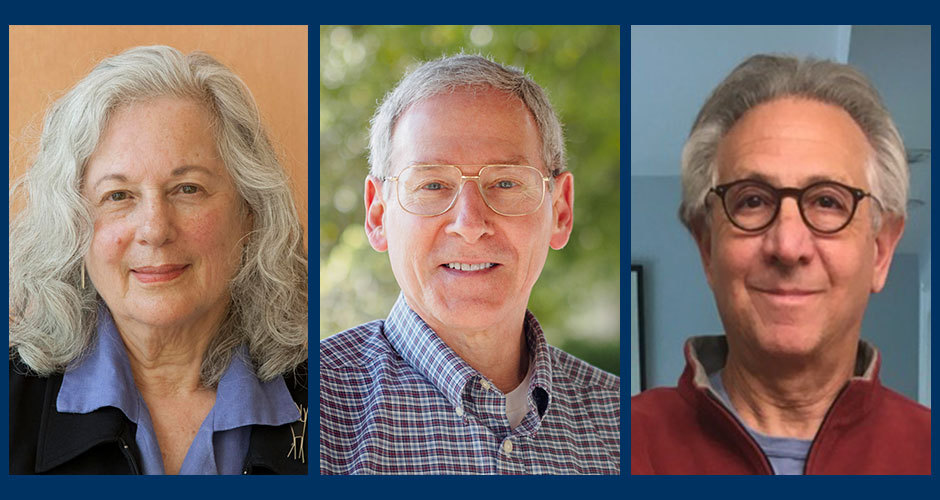
Asking Scientists to Step Up to Climate Change
By Kirsten Mickelwait
One of the few upsides to the COVID-19 pandemic has been the drastic reduction of air and road traffic—even China’s notoriously smoggy air has cleared. But once the pandemic is over, how quickly will we return to our carbon-producing ways? A trio of MCB faculty members wants to build on this progress, inspiring the scientific community to reimagine its national and international meetings in order to reduce the environmental imprint.
| Global warming from 1880 to 2020. Earth's global average surface temperature in 2020 tied with 2016 as the warmest year on record, according to an anaysis by NASA. Video courtesy the NASA Climate Change YouTube channel. |
Judith Klinman, a professor of Chemistry and of Molecular and Cell Biology in the Graduate School, has long been concerned with climate change and its ramifications. After attending a workshop by Al Gore’s Climate Reality Project in 2017, she realized the situation was even worse than she’d thought.
Carbon dioxide levels today are higher than at any point in at least the past 800,000 years, and even the Paris Climate Accord’s goal of reducing worldwide emissions to limit global warming to 1.5 degrees Celsius won’t be enough to save us from existential disaster. The pandemic we’re currently experiencing is just one outcome of the warming planet, she warns.
Klinman began giving free lectures on the subject, offering to pair one public talk on climate change with every research lecture she gave. Soon she’d partnered with Michael Marletta, professor of Chemistry and MCB, and MCB professor emeritus Jeremy Thorner. The three created a website, sciencestepsup.com, and set the goal of scheduling a summit of the major basic science societies in 2021. They’re calling for an interim, immediate halt to meetings that require long-distance travel and to share best practices for going forward with a workable combination of in-person and remote knowledge-sharing.
 MCB faculty leading the Science Steps Up efforts. Left to right: Judith Klinman, Jeremy Thorner, and Michael Marletta. MCB faculty leading the Science Steps Up efforts. Left to right: Judith Klinman, Jeremy Thorner, and Michael Marletta. |
When Klinman checked her own carbon footprint, she found that her major source of CO2 emissions was air travel to deliver lectures at scientific establishments and symposia worldwide. While there are alternatives to fossil fuels for vehicles, none exist for air travel. “It’s no longer enough just to pay a carbon tax,” she says. “A sizable percentage of Berkeley’s carbon budget is faculty air travel. We’re up in the air all the time.”
Klinman, Marletta, and Thorner next drafted a letter calling for action, which they initially sent to about 2,400 people, including Nobel Laureates, members of the National Academy of Science (NAS), and recipients of the National Medal of Science. As of March, they’d received about 400 signatures, including nearly 20 Nobel Laureates and 130 NAS members.
The next step is to find a major institution that will sponsor the effort, providing financial and administrative support. “During this unfortunate pandemic, we’ve started to build the tools we need to curtail excessive travel and turn our planet around,” Klinman says. “We have to do something because we’re now in very dangerous, unprecedented territory. As scientists, we should teach by example.”
How you can help:
-
Visit the Scientists Step Up to Climate Change website to learn more and pledge your support by signing the letter.
-
Calculate your own carbon footprint at https://www.carbonfootprint.com or https://www.carbonindependent.org
-
Join the effort. Follow their handle @ScienceStepsUp on Twitter and help spread the word on social media.
Back to Main Spring 2021 Newsletter Page
| Connect With Us! | ||||
MCB Twitter |
 MCB Facebook |
 LinkedIn Postdocs, PhDs, or Undergrads |
 Cal Alumni Network |
 Give to MCB |
